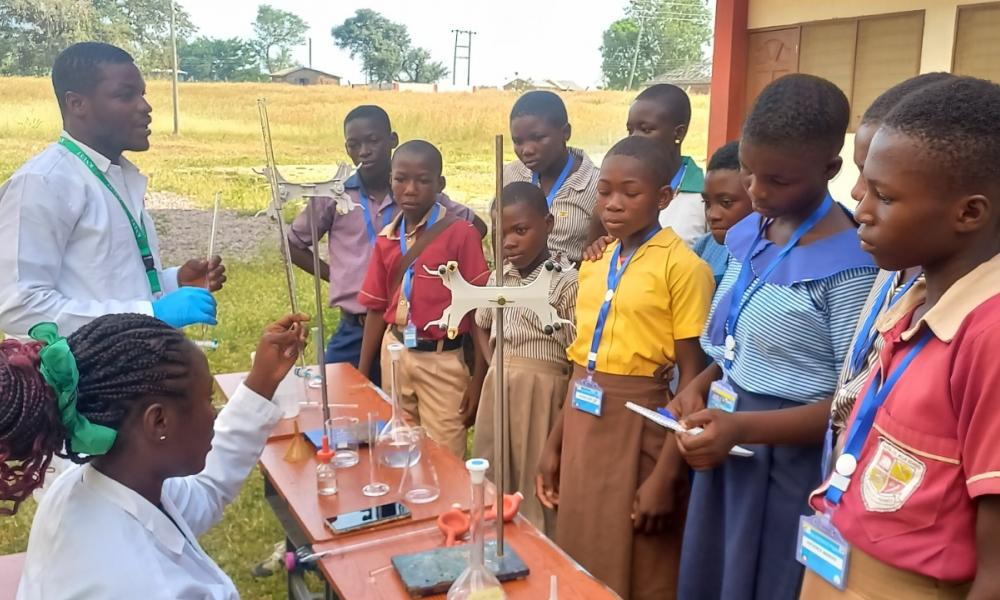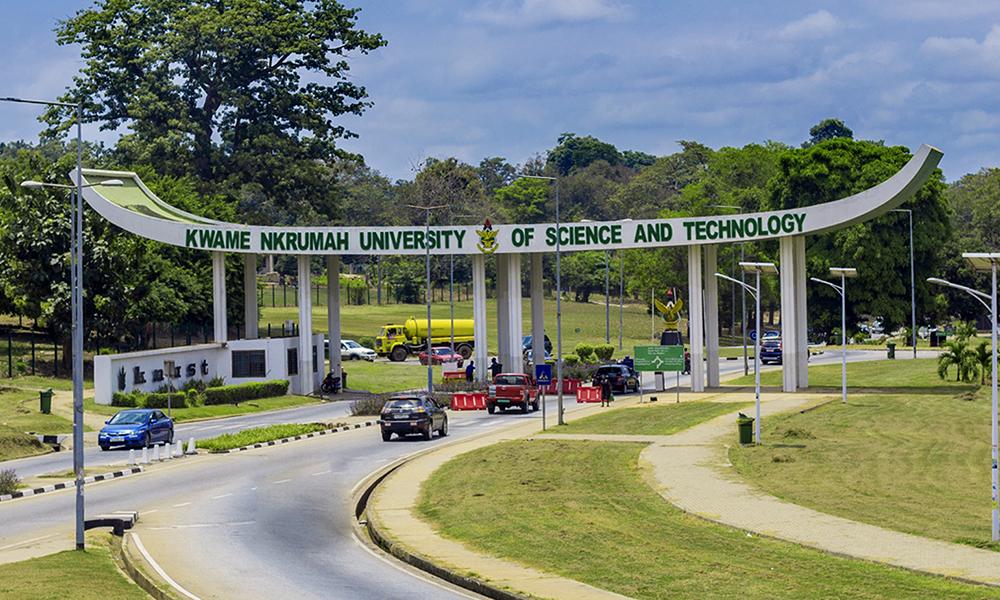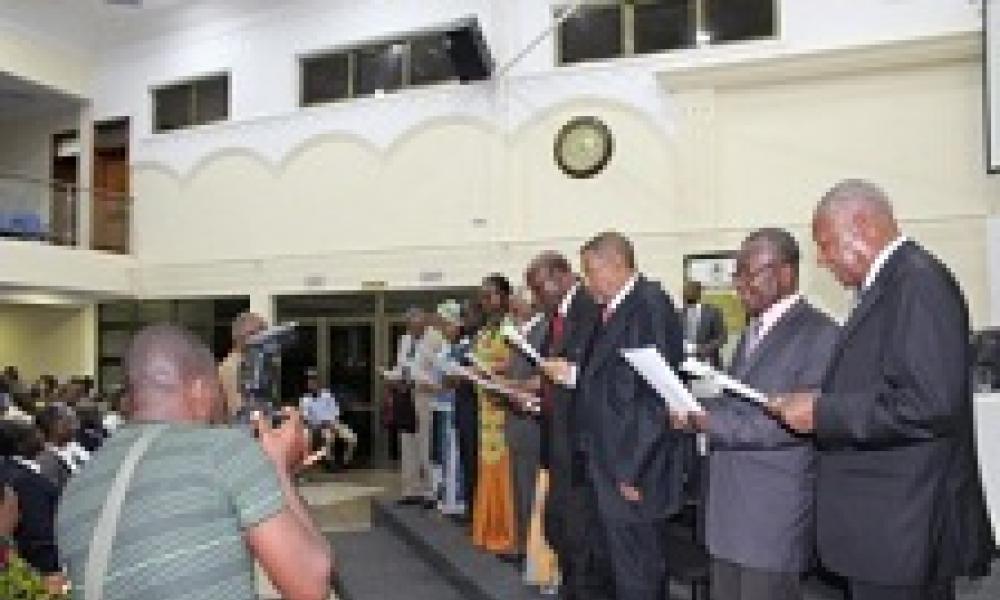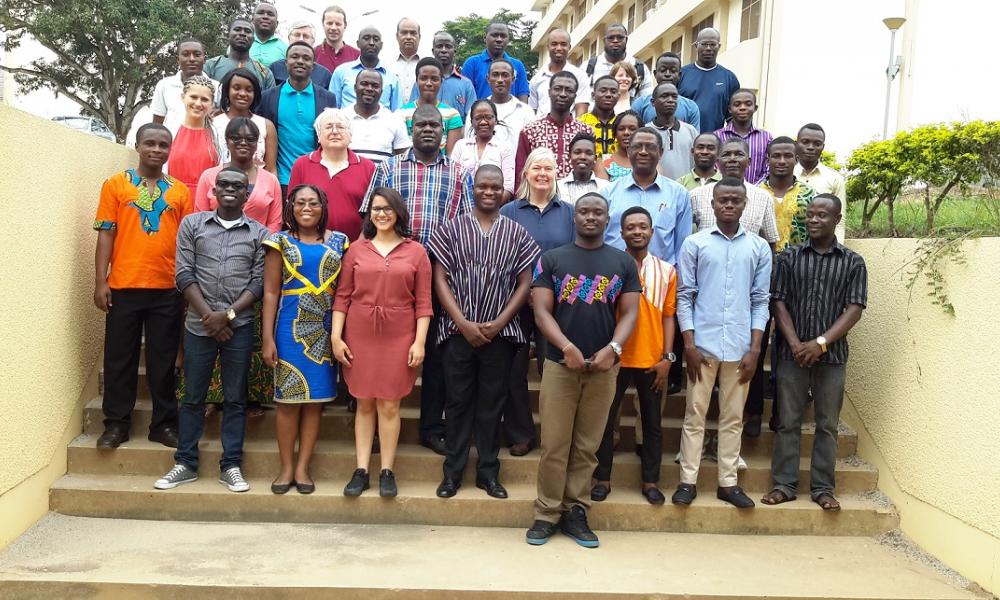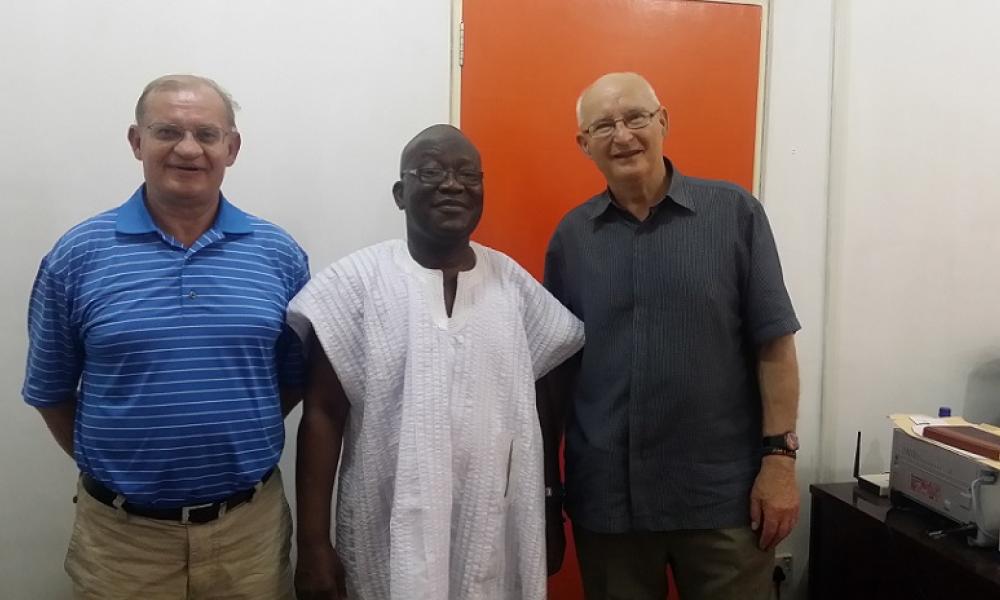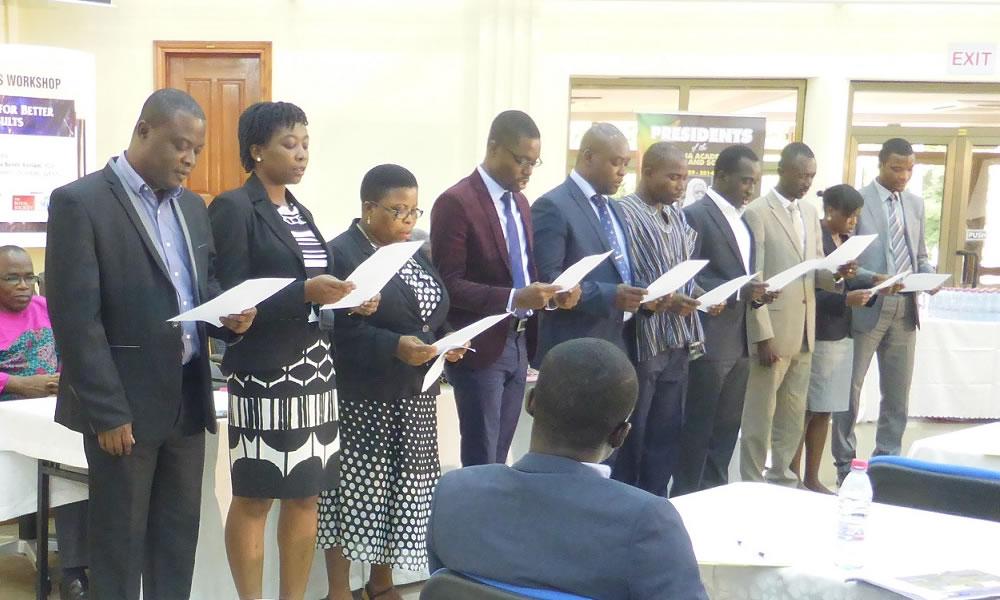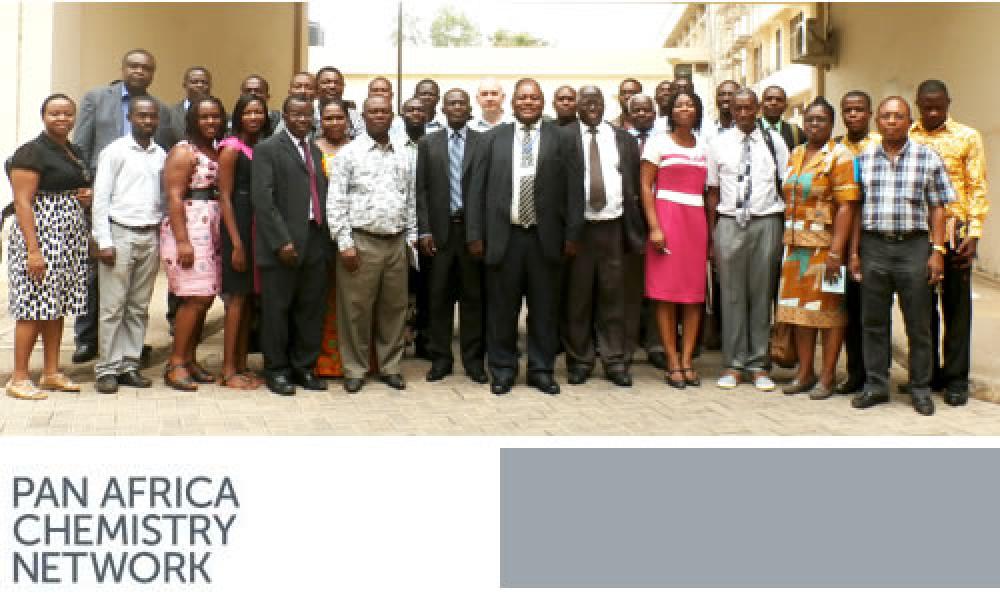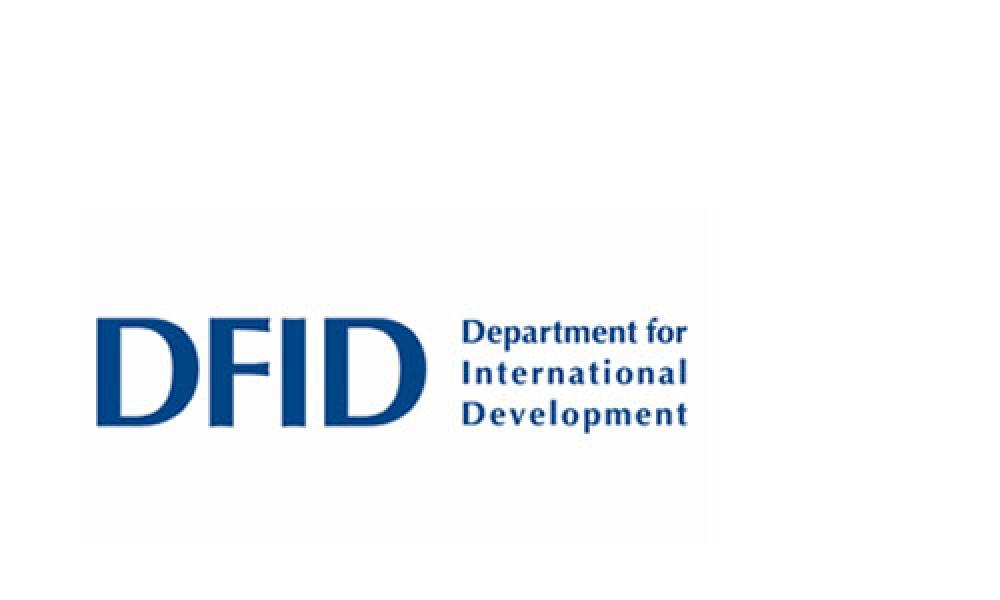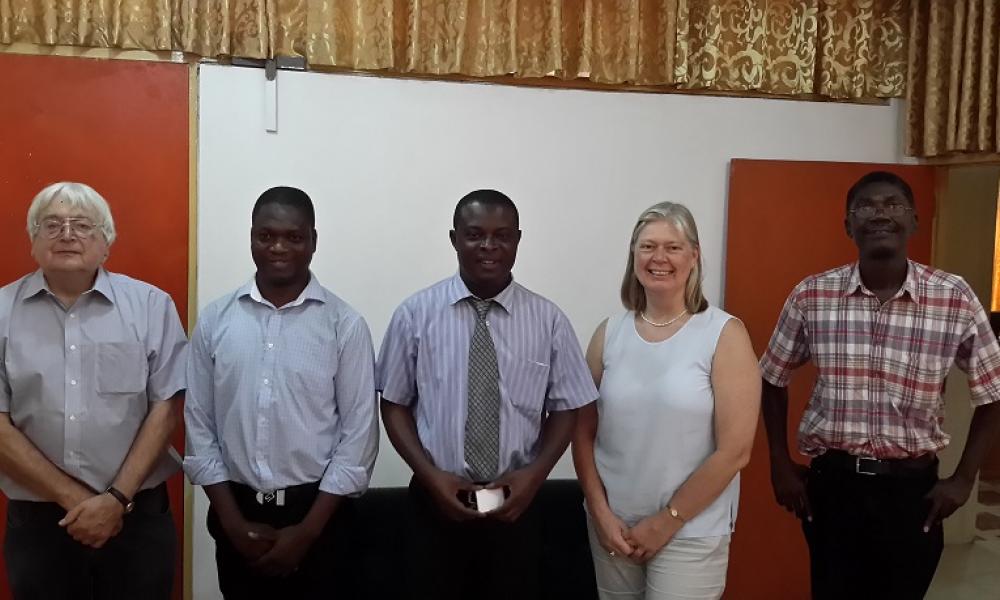Chemistry Department Hosts Royal Society - DFID Workshop on Renewable Energy
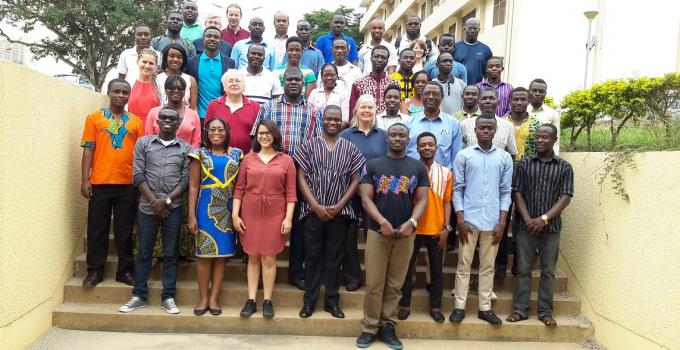
The Computational Chemistry Research Group of the Department of Chemistry hosted a five-day conference and workshop on Molecular/Materials Modeling, Catalysis and Crystallography on 1st – 5th August, 2016 on the theme “New Materials for a Sustainable Energy Future: Linking Computation with Experiment” as part of activities of the Royal Society – DFID-funded research and training project between the Department of Chemistry at KNUST, Cardiff University in Wales, the University of Namibia and the University of Botswana. The programme brought together scientists from Ghana, the UK, Botswana and Namibia who are engaged in fundamental research in the area of materials design for renewable energy applications to share the outcomes of their research and chart the course of future research in this area. Speakers and facilitators included Professor Nora H. de Leeuw, Professor of Computational Materials Science and Pro-Vice-Chancellor of Cardiff University; Professor Richard Catlow FRS, Professor of Catalytic and Computational Chemistry of Cardiff University; Professor Simon Coles, Professor of Structural Chemistry of the University of Southampton and Director of the UK National Crystallography Service; Professor Andrew Michael Beale, Professor of Inorganic Chemistry of University College London; Dr Sankar Meenakshisundaram of the Cardiff Catalysis Institute, Cardiff University; Dr. Jörg Saßmannshausen, University College London, UK; Dr. Suzanna C. Ward of the Cambridge Crystallographic Data Centre, Cambridge, UK; Dr. Alberto Roldan Martinez, Cardiff University, Wales; and Dr. Nelson Dzade of Utrect University, the Netherlands.
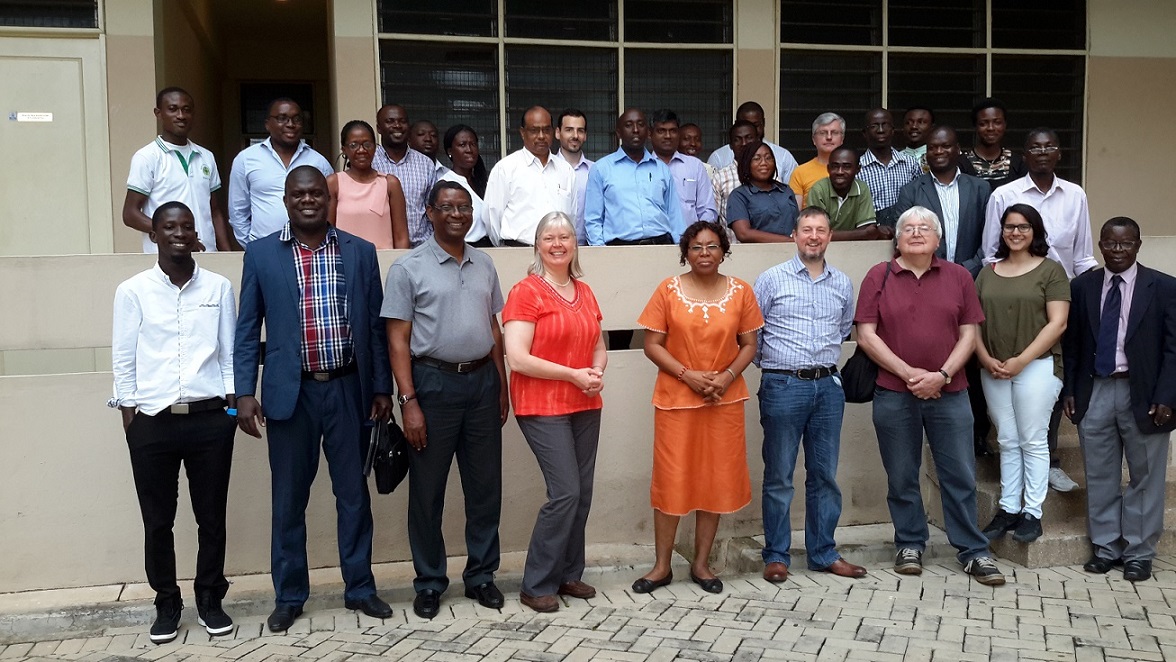
At the opening ceremony on Tuesday August 2, 2016 at the College of Science Boardroom, the leader of the KNUST wing of the research consortium and chairman of the Local Organizing Committee, Professor Evans Adei, underscored the importance of molecular/materials modeling in addressing the problems of the third world, not only in energy-related issues but also in several other areas including the pharmaceutical industry and stressed that scientists in the third world cannot be left out of this endeavor. The Provost of the College of Science, Professor Ibok Nsa Oduro, was happy that the workshop was taking place at a time when Ghana, and indeed the rest of the world, was grappling with serious energy issues, and expressed the hope that the research programme will come out with solutions to address the energy issues confronting the nation. She was particularly excited about the link between computational and experimental research and was hopeful that the two will work in synergy to achieve desired outcomes. She said “the design of materials with predetermined properties has become an important pursuit of scientists in solving our world’s persistent problems - particularly energy and climate change. In this pursuit the collaboration between theoreticians and experimentalists is key to fruitful outcomes. It is in this light that I see your five-day conference and workshop very important and very timely”.
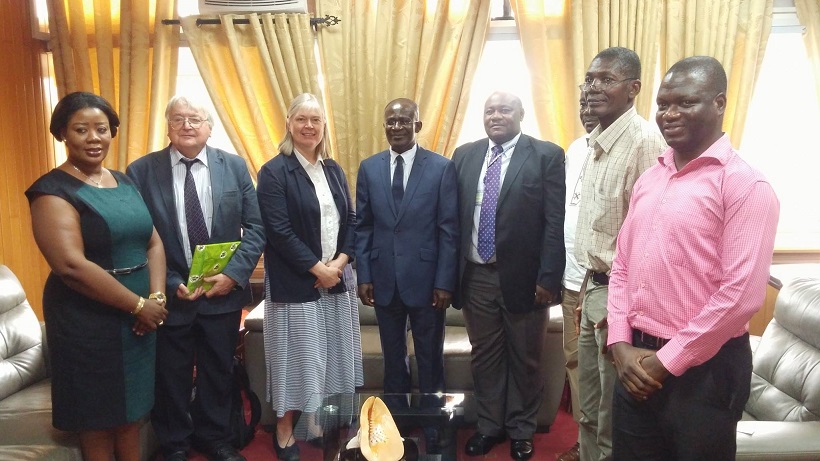
On 4th August, 2016, some of the leaders of the consortium - Professor Evans Adei, Professor Nora de Leeuw, Professor Richard Catlow and Dr. Richard Tia - together with the Head of the Department of Chemistry at KNUST, Dr. Osei Akoto, paid a courtesy call on the Vice-Chancellor, Professor Kwasi Obiri-Danso. Professor Obiri-Danso expressed his delight at the number of international research projects that academic staff of the university were involved in and promised that the university will do everything to facilitate these projects. He said the university is very keen to internationalize its activities, and collaborative research between KNUST academic staff and staff from universities across the globe is one of the best ways of achieving this goal. He said the university is determined to increase the percentage of its postgraduate students from the current 14% to about 20% in the shortest possible time, to bring it in line with international standards, since postgraduate students are the engine of research in any university. The Pro Vice-Chancellor, Professor Samuel Nii Odai, was happy that out of 10 consortia funded by the Royal Society –DFID programme so far across Africa and the UK, KNUST has the highest number of four, saying that “this means we are doing something right here” and congratulated all the KNUST award winners.
